Serial Polluter Facing the Music in Courts
Norfolk Southern put profit over safety
Visit the Evidence Files Facebook and YouTube pages; Like, Follow, Subscribe or Share!
On February 3, 2023, around 50 Norfolk Southern train cars derailed in East Palestine, Ohio. Twelve days later, I produced a thorough report about it. For the details as they were known to me at that time, please click below. Just this week, the United States Department of Transportation’s (USDOT) Federal Railroad Administration (FRA) released a follow-up report blandly titled “Norfolk Southern Safety Assessment.” The company does not look any better now than it did then.
Briefly, this is what happened back in February:
Reports stated that as many as 10 of the cars contained toxic chemicals. Chemicals identified by the Environmental Protection Agency (EPA) include Vinyl Chloride, Ethylene Glycol Monobutyl, Ether, Ethylhexyl Acrylate, and Isobutylene. As a precaution against explosions, authorities burned off one of those chemicals, vinyl chloride, from inside five cars.
Upon release of its report, FRA Administrator Amit Bose stated, “FRA’s findings highlight the need for significant improvements in training practices, overall communications, and trust — all of which are vital to prevent accidents before they occur.” Translated from bureaucratic-ese to plain language, Norfolk Southern’s culture of safety barely exists, and where it does, it is mostly rated as infantile.
Ok, perhaps that is harsh. Instead of taking my word for it, however, consider the two graphics below from the FRA report. The first is the verbiage that FRA uses to rate the quality of a company’s safety culture. On the left side you see the lowest level—the infancy level—or, as FRA terms it, “emerging.” What should be the lowest level of a company’s safety culture—especially one that moves poisonous, potentially lethal toxins—is the “co-operating” level. There, at least, FRA deems that a company “engage[s] all staff to develop cooperation and commitment to safety improvement.”
FRA report, pg. 7
Now let’s look at how the FRA rated Norfolk Southern within this paradigm.
Id., p. 8
In only a single area—one—is the company even “moving” toward what should be the lowest rating for a company that transports hazardous materials. Curiously, the report summarizes this paltry state of affairs this way:
This middle level of safety culture maturity reflects both the positive changes and renewed commitment shown by NS’ leadership to improve safety as well as the areas where NS continues to operate in a manner that is reactive and focused on compliance with minimum safety requirements of federal 9 regulations and industry standards.
In short, the FRA determined that Norfolk Southern’s—at best—middling status was an improvement. More than a century after the advent of the railroad for moving commercial goods, the results exhibited in this report are nothing short of astonishing.
The FRA illustrates some of the probable reasons for Norfolk Southern’s atrocious ratings. It dryly points out that the company consolidated from nine divisions to six, and “in response to the COVID-19 pandemic” the company reduced personnel and in-person training (p. 13). This led to an increase in rail accidents from 2018 to 2022. In fact, FRA is currently investigating 8 other incidents involving this company, at least one of which has resulted in a fatality. Norfolk Southern’s CEO, Alan Shaw, issued a public statement on the matter:
We are a safe railroad driven to become even safer. To learn, we have to listen. It’s important to understand where the FRA believes we can do better, and we appreciate that they identified positive areas where we are already making progress.
FRA administrator Amit Bose relayed it more accurately, “This first-of-its-kind assessment — conducted immediately after the Norfolk Southern derailment in East Palestine — shows in too many instances the railroad should be doing more to ensure the safety people deserve.” [Emphasis mine]
A few hours after publishing the first article on this incident, I learned of at least 5 lawsuits that had been filed on or around that same day. The lawsuits made various allegations including:
[A]nimals have been found dead as far as 20 miles away from the scene. Some who have returned to the area since the EPA gave the “all clear” are complaining of headaches and other ailments along with a strong smell of chlorine in the air.
[T]he train was allowed to carry the various hazardous materials with “non-hazardous” labels, an apparent result of the rollback of regulations in 2017.
[M]ore than 1.1 million pounds of vinyl chloride entered the air.
Most of the lawsuits seek compensation for loss of income, or damages for exposure to cancer-causing chemicals. Others are seeking lost revenue for local businesses as well as punitive damages.
I also noted that Alan Shaw, who was the CEO at the time of the incident, “makes more than $4.5 million per year and owns more than 20 properties in Georgia and Virginia.” His wealth and the extraordinary valuation of the company starkly contrasted with Norfolk Southern’s original public response to the crash:
These lawsuits, though, may partly be in response to a public offer by Norfolk Southern to “donate” toward the cleanup in East Palestine. The company—valued at $55 billion—offered the community $25,000. Twenty. Five. Thousand.
The US Department of Justice has joined the lawsuit fiesta, filing a civil suit in late March. The suit alleges violations of the Clean Water Act (CWA) and seeks damages, cost recovery, and injunctive relief. Already, the Environmental Protection Agency (EPA) stated it is forcing Norfolk Southern to pay for the all the necessary cleanup costs.
The State of Ohio also filed suit against the company. In that suit, the Ohio State Attorney General’s Office wrote:
The Derailment was just one in a long string of Norfolk Southern train derailments, hazmat incidents/community evacuations, and releases of hazardous materials, hazardous substances, hazardous wastes, and/or other harmful pollutants into the environment. As detailed herein, Norfolk Southern’s accident rate has nearly doubled in the past 10 years, and at least 20 of those derailments since 2015 have involved chemical releases. The Derailment was entirely avoidable and the direct result of Norfolk Southern’s practice of putting its own profits above the health, safety, and welfare of the communities in which Norfolk Southern operates.
The Ohio AG’s withering statement of facts didn’t end there. Over the next several pages, the complaint laid out Norfolk Southern’s shameful, negligent history. Here are some highlights:
[I]n 2005, a crew failure on Norfolk Southern Train P22 resulted in a derailment in Graniteville, South Carolina, releasing tons of poisonous chlorine gas and thousands of gallons of diesel fuel. The disaster killed nine people, injured 554 others, and forced 5,400 people to evacuate their homes for several days. The derailment resulted in widespread property destruction and wildlife kills.
[I]n 2006, a collision between two Norfolk Southern trains injured three crewmembers and caused millions of dollars in property damage due to the resulting release of sodium cyanide, necessitating the evacuation of hundreds of people in Lincoln, Alabama.
The same year, in Keating, Pennsylvania, a Norfolk Southern derailment spilled 42,000 gallons of sodium hydroxide and caused major fish kills in several water bodies. That derailment was caused by the crew’s failure to follow train handling and airbrake instructions, combined with excessive speed.
In July 2022, Norfolk Southern was responsible for a train derailment in Warner Robbins, Georgia, carrying sulfur. The derailment occurred after the crew was instructed to continue train movement despite indication of a defective, leaking journal bearing. The bearing was not inspected by mechanical personnel or set out for repair before it was added to another train, leading to the derailment.
On March 9, 2023, Norfolk Southern had yet another derailment, this one in Calhoun County, Alabama involving 30 railcars. It occurred a few hours before Norfolk Southern’s CEO admitted in his testimony before Congress about the East Palestine derailment, “yet it is clear that safety mechanisms in place were not enough.”
These were just some incidents. According to the lawsuit, Norfolk Southern’s accident rate rose by a whopping 80% since 2013, with at least 20 of them spilling dangerous chemicals since 2015.
CEO Shaw was involved in the lobbying that led the Trump administration to rollback some safety rules for the railroad industry in 2017. It removed the requirement for enhanced braking systems hauling certain “hazardous flammable commodities,” among other things. In the East Palestine incident, the Ohio AG alleges that a bearing failure occurred that led to a fire when the conductor engaged the braking system (the NTSB also suggested this was the probable cause). This resulted from a breakdown in safety systems that the DOJ contends occurred because of “reductions in spending to repair, service, and maintain locomotives and freight cars, [and] perform train inspections.”
Nearly all investigating agencies seem to agree that Norfolk Southern’s reckless disregard for safety, driven by its bottom line, contributed to the incident more than any other causal factor. The lawsuits remain pending, even as the company desperately seeks to dismiss any of them it can. For example, in one suit it proclaimed that plaintiffs’ rely on “vague and conclusory allegations” that it acted improperly before the crash.
Subsequent regulation
Not long after the incident, both parties of Congress saw some members announce a plan to action. Ohio Senators Sherrod Brown (Democrat) and JD Vance (Republican) proposed a railroad safety bill that demanded a number of increased measures, such as more safety inspections and minimum crew requirements, among several others. Vance said of the bill, “These rail lines pass frequently through Republican areas, small towns with a lot of Republican voters. How can we look them in the eye and say, we’re doing a good job by you? If we choose the railroads over their own interests, we can't.” Notwithstanding the implication that he wouldn’t give a damn had this happened in a place of a majority Democrat voters, his party seemed unmoved regardless. Senator John Thune of the Republican party, for example, opposed the bill citing the “cost of regulation” on railroads—his concern for the cost to affected communities was noticeably absent.
The Railroad lobby has a strong grip on the US Congress, and its members and supporters try to muddy the waters with utter nonsense, obvious to anyone but politicians, apparently. For example, Shaw testified before Congress and later told NPR that he didn’t see a need to require two-person crews on trains that continue to grow longer as rail companies seek to save money by adding cars. Shaw said, “We have not seen a link between crew size and safety.” Shaw seemed befuddled by the idea that two people overseeing a monstrous train laden with toxic chemicals would be safer than one operated by a single person.
As always, it is about money. For example, Leo Nelissen, an “investment group leader,” callously wrote:
This derailment isn't Norfolk's biggest problem… the company could pay more than $75 million to address property damage and potential injury claims…. Norfolk Southern's 10K filing with the U.S. SEC reveals that the company has liability insurance for bodily injury and property damage to third parties, providing less than $800 million in coverage. The company has coverage for "specific perils" up to $1.1 billion. The coverage is provided on a per occurrence and/or policy year basis and in excess of $75 million and below $800 million. The company also purchases insurance for damage to its property or property in its care, custody, or control. This insurance covers around 82% of potential losses above $75 million and below $275 million per occurrence and/or policy year.
The people of East Palestine would like to have a word on Norfolk Southern’s “biggest problem.” I suspect it ain’t insurance. Perhaps it is time to start holding shareholders criminally responsible for the acts of companies from which they earn profits. The majority of those criminally negligent acts come at the expense of the environment and human and animal safety. Putting shareholders in the dock might compel them to demand that the companies in which they invest, you know, abide by the law.
After some months of wrangling, the U.S. Senate Committee on Commerce, Science and Transportation finally approved a bill titled the Railway Safety Act of 2023. President Joe Biden had this to say about it:
I applaud the bipartisan group of senators for proposing rail safety legislation that provides many of the solutions that my administration has been calling for. This legislation provides us with tools to hold companies accountable to prevent terrible tragedies like the Norfolk Southern derailment in East Palestine and to make those communities whole.
The bill hardly seems to provide much in the way of “tools.” As the Whitehouse press release itself notes, the bill only “increase[s] fines for safety violations from the current cap of $225,000 to the greater of $1 million or 1% of a railroad’s annual operating income.” One whole percent.
Undoubtedly, rail companies will fight every regulatory provision possible—no matter how minimal—where it will cost them additional money. But, it shouldn’t take a tragedy of this size and scope to enact and enforce obvious and effective regulations. The problem is that most companies simply buy their way out of responsibility, just as Norfolk Southern appears to be attempting to do here (at least in the instances where it can’t trick courts into dismissing the cases against it). Shareholders will remain unbothered, as their dividends will likely barely change, and these events will continue to devastate communities leaving them with nothing but the occasional meager check.
***
I am a Certified Forensic Computer Examiner, Certified Crime Analyst, Certified Fraud Examiner, and Certified Financial Crimes Investigator with a Juris Doctor and a master’s degree in history. I spent 10 years working in the New York State Division of Criminal Justice as Senior Analyst and Investigator. Today, I teach Cybersecurity, Ethical Hacking, and Digital Forensics at Softwarica College of IT and E-Commerce in Nepal. In addition, I offer training on Financial Crime Prevention and Investigation. I was a firefighter before I joined law enforcement and now I currently run a non-profit that uses mobile applications and other technologies to create Early Alert Systems for natural disasters for people living in remote or poor areas.
Find more about me on Instagram, Facebook, Twitter, LinkedIn, or Mastodon. Or visit my EALS Global Foundation’s webpage page here.
For an article on how disasters hurt our furry friends, see here. Thanks for reading!




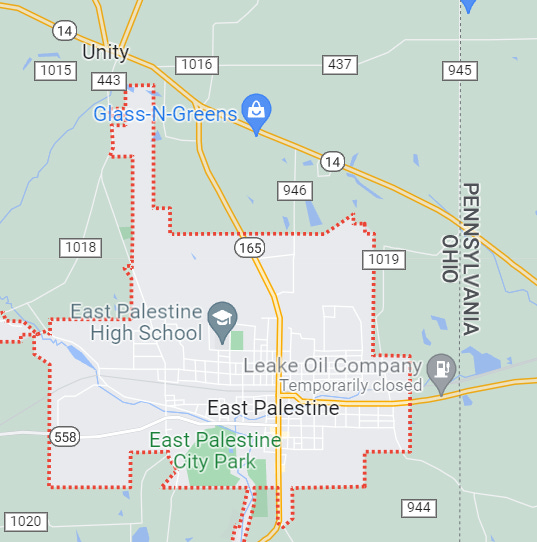
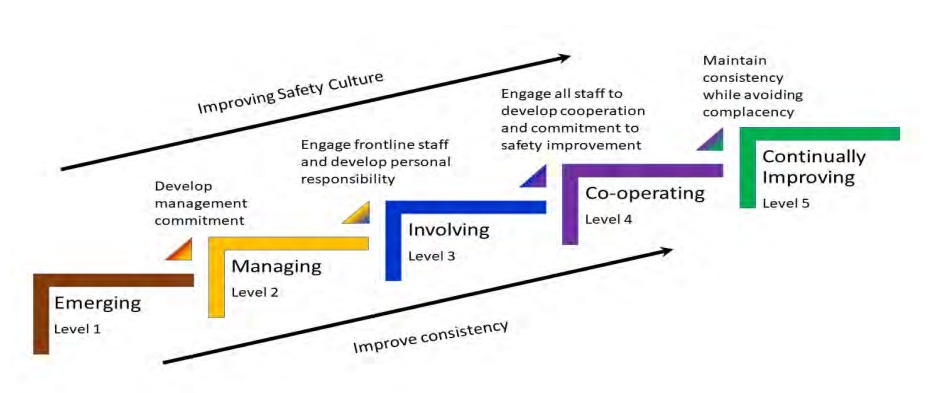
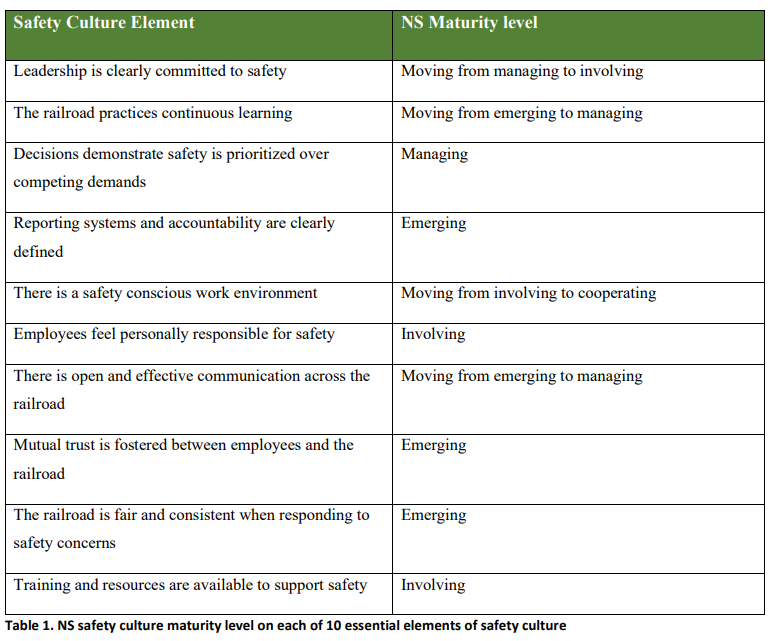
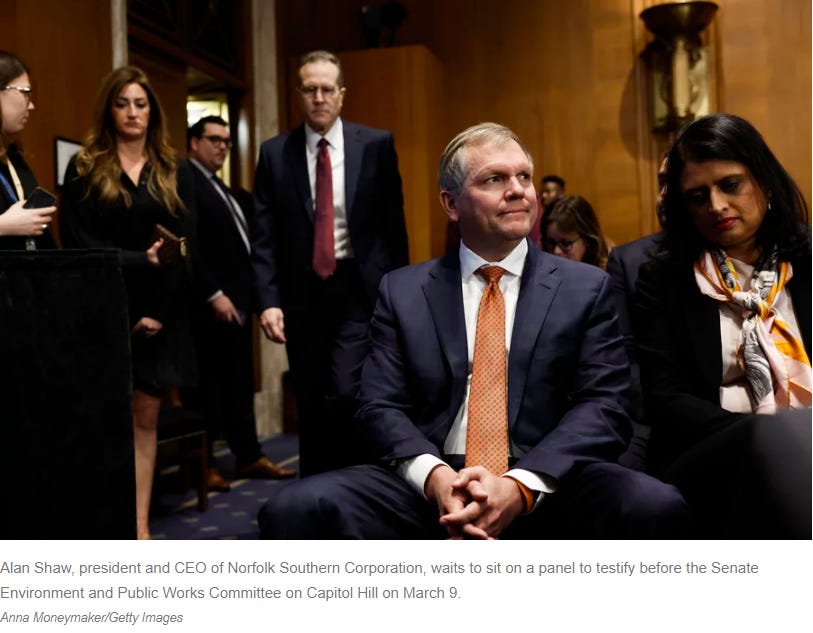
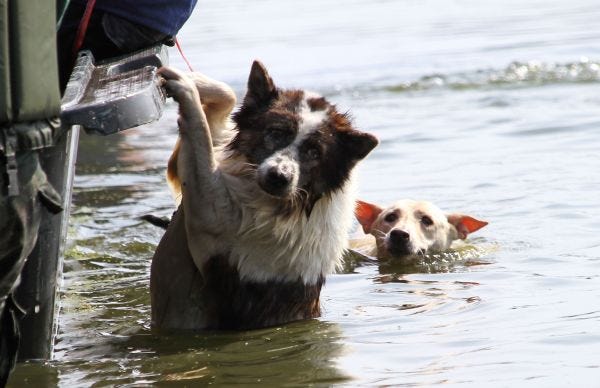
The railroad has the government in their pockets. Without people wildlife or aquatic Life or usable land there would be no world and it doesn't seem like the government or the railroad could care less.